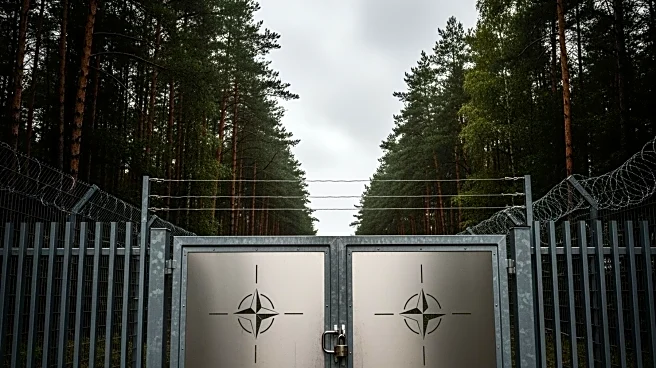What's Happening?
Lithuania has closed its border crossings with Belarus, citing a series of cross-border balloon launches as part of a 'hybrid war' against Europe. Prime Minister Inga Ruginienė announced that these balloons,
which have been drifting into Lithuanian territory, are considered 'hybrid attacks' aimed at destabilizing the region. The Lithuanian army is set to begin shooting down these balloons. The situation has escalated following the temporary suspension of flights at Vilnius International Airport due to unidentified balloons entering Lithuanian airspace. Initially thought to be the work of criminal smugglers, these balloons are now believed to be part of a coordinated effort by Belarus and Russia to provoke neighboring countries. Lithuania is contemplating invoking Article 4 of the North Atlantic Treaty, which allows NATO members to consult when a member perceives a threat to its security.
Why It's Important?
The closure of the border and potential invocation of NATO Article 4 highlight the growing tensions in Eastern Europe, particularly between NATO members and Belarus, a close ally of Russia. This development could have significant implications for regional security and NATO's strategic posture. The use of balloons for smuggling and potential intelligence activities represents a novel challenge for border security and airspace management. The situation underscores the complex nature of modern hybrid warfare, where traditional military actions are supplemented by unconventional tactics. The potential for increased military engagement or diplomatic consultations within NATO could affect international relations and security policies in the region.
What's Next?
Lithuania's decision to close its border with Belarus and consider NATO consultations may prompt reactions from both Belarus and Russia. NATO's response to Lithuania's potential invocation of Article 4 will be closely watched, as it could lead to increased military readiness or diplomatic efforts to de-escalate tensions. The situation may also influence other NATO members' security policies and border management strategies. Additionally, the international community will likely monitor the developments for any further provocations or escalations in the region.











